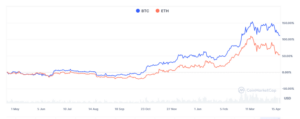-
Taejun Shin founded Gojo & Company to promote financial inclusion by creating “the private sector version of the World Bank”.
-
Today, Gojo & Company serves more than 1.2 million households.
-
The company provides its clients with financial products like insurance and energy loans.
Taejun Shin was born and raised in Japan as the son of Korean immigrants who became stateless around the time of Japan’s surrender in WWII. He found himself in the difficult position of being a stateless entrepreneur but ultimately founded Gojo & Company – a non-profit focused on promoting global financial inclusion.
Though he admits that life wasn’t always easy, thanks to his parents’ hard work he was able to get a good education and ultimately work at Morgan Stanley Capital in Tokyo. Here, he founded the company and developed Japan’s first microfinance investment fund.
What motivated you to launch Gojo & Company?
I was lucky enough to have adequate financial access, which I knew was not the case for many entrepreneurs in developing nations, and I decided that I wanted to help create a more just and equal world.
When I attended the World Economic Forum’s Annual Meeting in Davos in 2012, it occurred to me that I could create an institution similar to the World Bank to provide financial services to the underprivileged. It’s been eight years since its establishment, and Gojo has already grown into a company of 8,000 employees that serves more than 1.2 million households globally.
For me, success happens when what I believe in, what I say, and what I do are consistent and aligned. Gojo aspires to impact our clients positively through our services – be it through income improvement, cash flow stabilisation, or enhancing resilience to external shocks. With more than 50 years of history, there are many lessons about how microfinance institutions can improve people’s lives.
What projects are you currently working on?
We’ve recently established a new foundation to serve the lowest income demographic who we couldn’t support before. Once the foundation obtains a tax-deductible qualification, I plan to strengthen it further by giving it my Gojo & Company shares.
Most of our customers live below $5.5 a day. We haven’t been able to provide our services to the “extremely poor” segment – the demographic living below $1.9 a day – because we couldn’t find a way to offer them commercially viable services.
Thus, as we move ahead, the development of this foundation to finally serve the lowest income segment will be a focal point.
As one of the Forum’s young global leaders, how has the community impacted your work?
My life would be unimaginable without the Young Global Leader community, and my journey would undoubtedly have been different had I not joined the Davos Annual Meeting in 2012. My wife, Hiromi Ozaki, is a Young Global Leader. And Arnaud Ventura, also a Young Global Leader, became the managing partner of Gojo. Together we are running the company. In addition, I’ve made countless new friends in the community who I cherish as both mentors and supporters.
Link: https://www.weforum.org/agenda/2022/09/young-global-leaders-funding-for-underserved-communities?utm_source=pocket_mylist
Source: https://www.weforum.org
- ant financial
- blockchain
- blockchain conference fintech
- chime fintech
- coinbase
- coingenius
- crypto conference fintech
- fintech
- fintech app
- fintech innovation
- Fintech News
- OpenSea
- PayPal
- paytech
- payway
- plato
- plato ai
- Plato Data Intelligence
- PlatoData
- platogaming
- razorpay
- Revolut
- Ripple
- square fintech
- stripe
- tencent fintech
- xero
- zephyrnet














